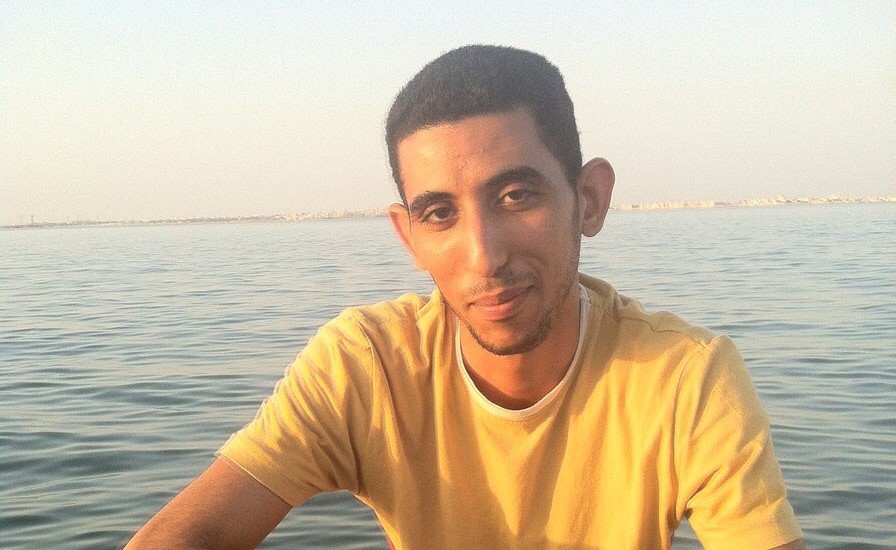Ahmed Merza Ismaeel was arrested without a warrant by security forces wearing civilian clothing on 11 September 2013. Since then, he has been subjected to torture, convicted in a collective judgment based on coerced confessions, denied basic necessities such as prison clothing and a blanket, and deprived of necessary medical care by the Jau Prison administration. Ismaeel is a teacher and the half-brother of Sheikh Ali Salman, the imprisoned Secretary-General of the now-dissolved Al-Wefaq National Islamic Society, Bahrain’s largest political opposition group. The government’s targeting of Ismaeel is suspected in part to be a reprisal against the political leader.
Ismaeel was first detained at the Ministry of Interior’s Criminal Investigations Directorate (CID) facility in the Adliya neighborhood of Manama, where he was subjected to torture during six interrogation sessions in the first few days. CID interrogators employed beatings, electric shock, forced standing for periods of days, and sexual abuse in an attempt to coerce Ismaeel to sign a confession. Later, after he was brought to Dry Dock Detention Center and then transferred to Jau Prison, he was physically assaulted by guards during transportation and again on arrival. He has also at times been held incommunicado and in solitary confinement.
In addition to the physical abuses Ismaeel has suffered, the Government of Bahrain has denied him the rights to due process and a fair trial. Ismaeel was accused of providing moral and material support for a bombing that took place on 29 August 2013, while he was out of the country (as confirmed by records of the Nationality, Passports & Residence Affairs office). He was convicted on the confessions of two codefendants, who objected that their confessions were coerced. Additionally, the court judgment claims that Ismaeel confessed to the crime, when in fact Ismaeel denied the charges even under torture. Despite the lack of evidence, the Fourth Circuit Superior Criminal Court convicted Ismaeel with six codefendants and sentenced him to ten years in prison.
During his trial and subsequent imprisonment, Ismaeel has been deprived of necessary medical treatment. Ismaeel suffers from sickle cell anemia, an inherited disorder that prevents red blood cells from flowing regularly and can cause pain, infection, and stroke. His personal physician noted that his condition is severe and requires admission to hospital for treatment. His medical problems have been exacerbated by the torture he suffered and by denial of medical care by the prison administration. Ismaeel has previously experienced severe pain in the abdomen, bones, and muscles, and the actions of the prison authorities have led to complications affecting his liver, spleen, and gallbladder; he has been in urgent need of surgery to remove his gallbladder for more than a year and has begun to exhibit symptoms of possible jaundice. On the rare occasions when Ismaeel is permitted to receive medical care, he is shackled by hands and feet to a hospital bed.
In addition to direct refusal to provide medical care, the prison administration has also employed deception and coercion. In May 2017, Ismaeel went on hunger strike to protest his medical care for ten days, breaking the strike only when the prison administration assured him of improved treatment. This treatment was never granted. The administration has also threatened Ismaeel with beatings and solitary confinement if he did not sign statements of refusal to attend medical appointments.
Bahrain’s actions violate international law, including the Convention Against Torture, the International Covenant on Civil and Political Rights (Articles 7, 9, and 14), and the International Covenant on Economic, Social and Cultural Rights (Article 12). Bahrain is a party to each of these treaties. ADHRB calls upon Bahrain to uphold its human rights obligations by annulling Ismaeel’s conviction and ensuring that any further trial is consistent with due process and fair trial rights. We additionally urge the authorities to investigate claims of torture and ill treatment by prison officials and to provide necessary medical treatment to Ismaeel and all other prisoners.





